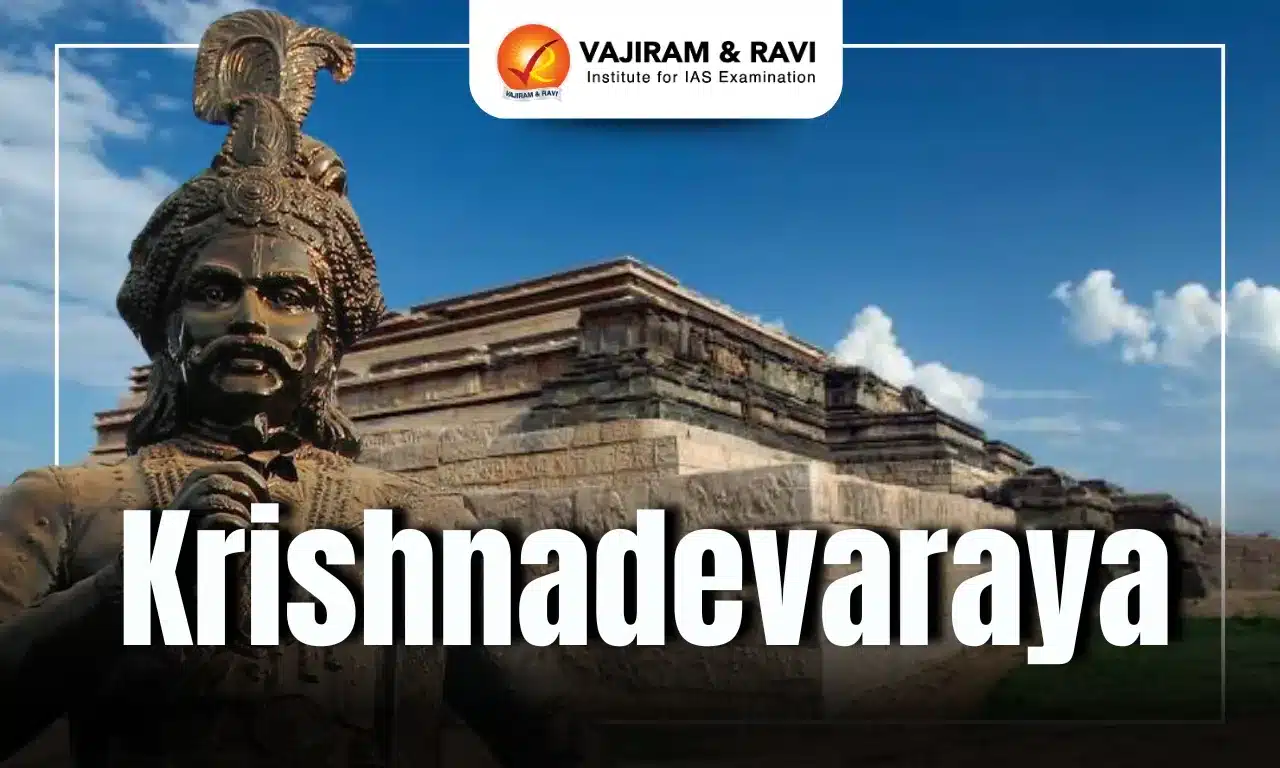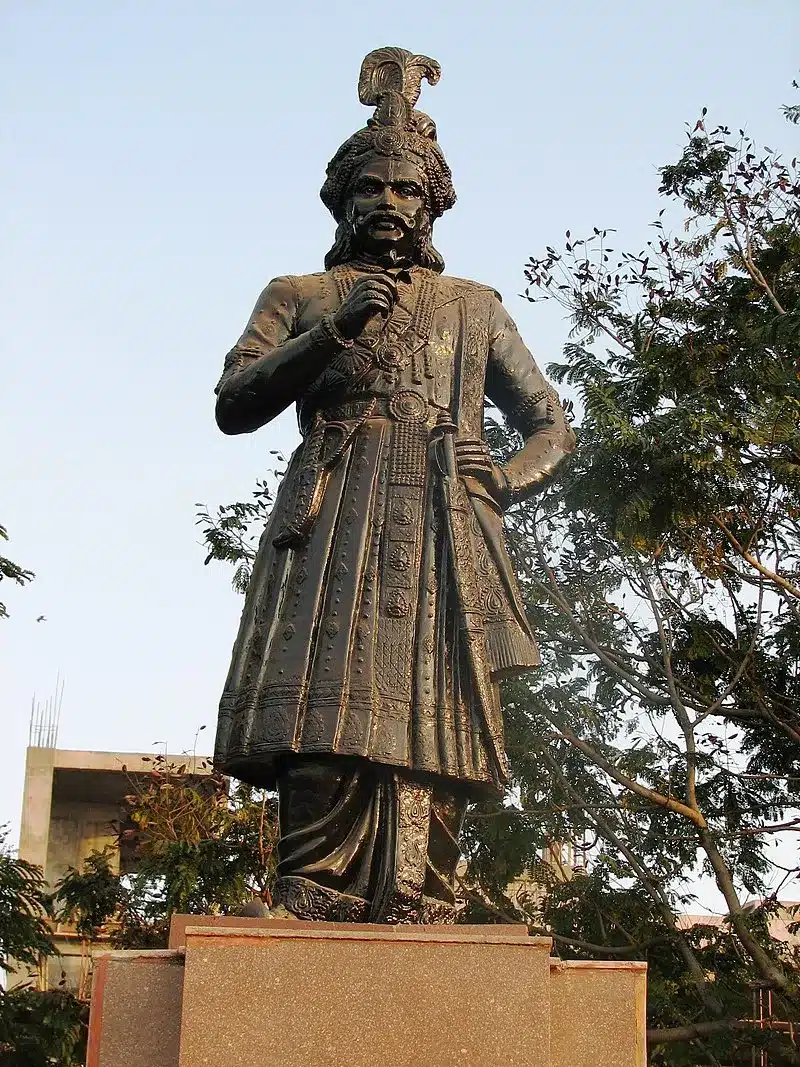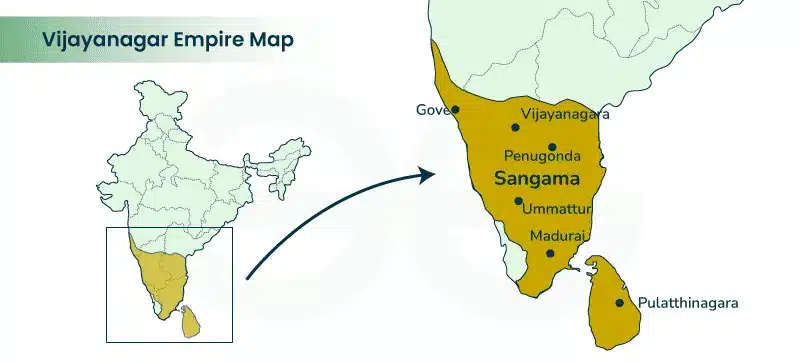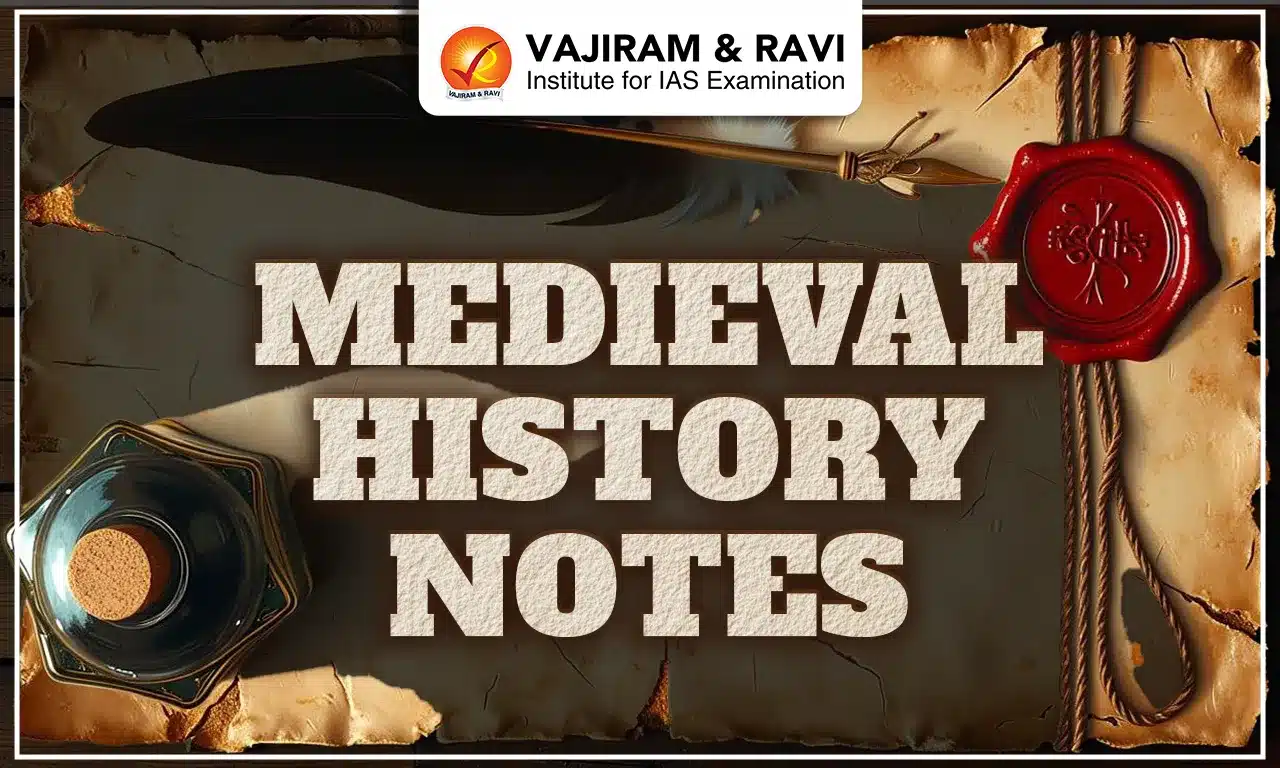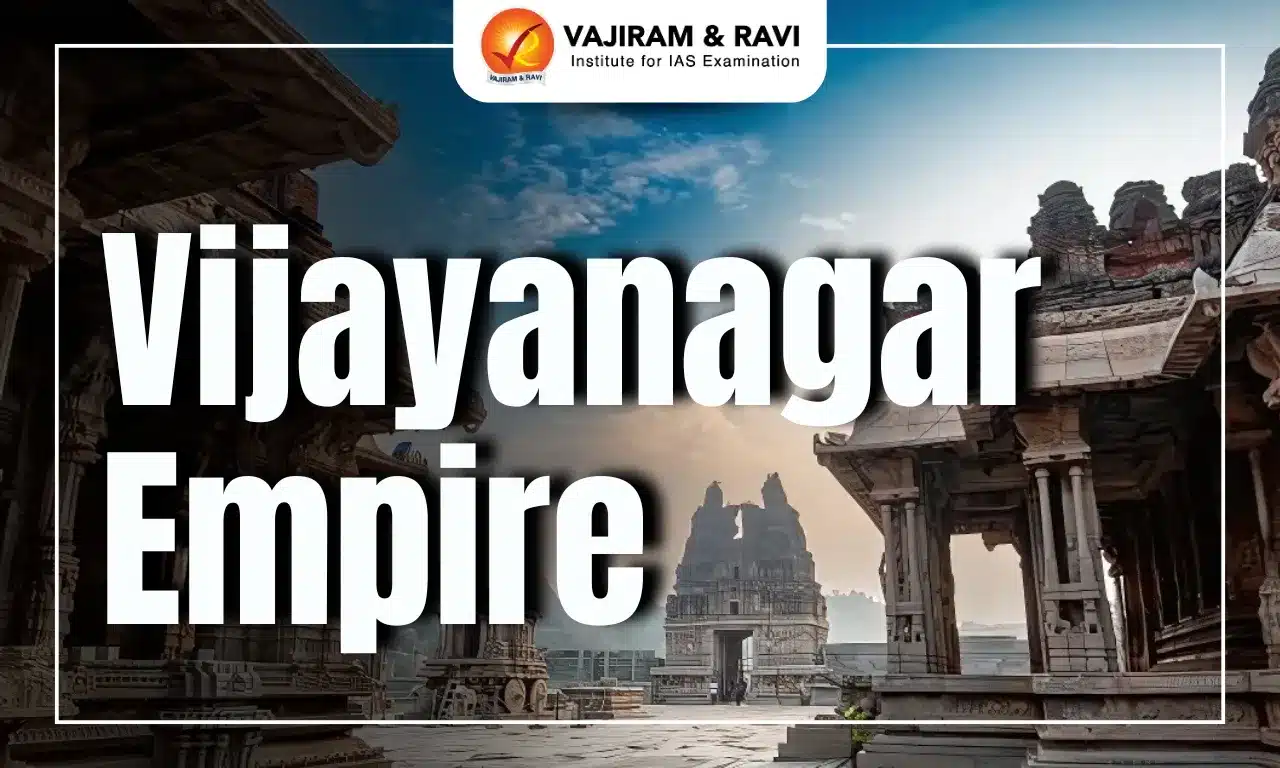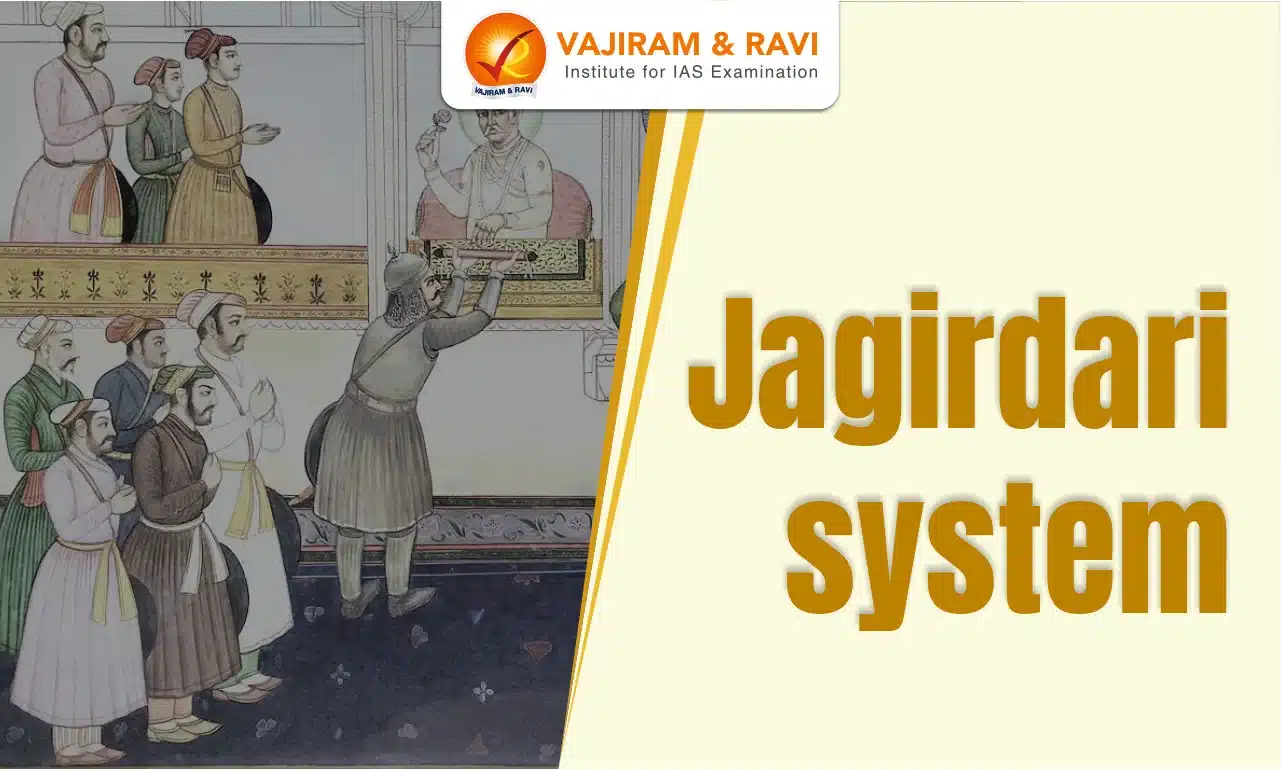Krishnadevaraya, the third ruler of the Tuluva dynasty, reigned over the Vijayanagara Empire from 1509 to 1529, leading it to its zenith in military, administrative, and cultural achievements. His administration emphasized justice and accountability, guided by advisors like Timmarusu and Tenali Ramakrishna. He promoted agricultural expansion and abolished burdensome taxes to improve the people's welfare.
Krishnadevaraya's military successes included major victories in four significant battles the defeat of the Bahmani Sultanates, victory over the Gajapatis of Odisha, the Tuluva war with Kalinga, and the decisive Battle of Raichur. His reign also marked a literary golden age, promoting works in Telugu, Kannada, Sanskrit, and Tamil. A devout Hindu, he supported religious diversity and contributed to constructing and restoring temples across his empire.
Krishnadevaraya Overview
Krishnadevaraya, the greatest of the Vijayanagar rulers, reigned from 1509 to 1529, during which the empire reached its military, administrative, and cultural zenith. The son of Tuluva Narasa Nayaka and Queen Nagamamba, he established the Tuluva dynasty.
Raja Krishna Deva Raya was also known as ‘Abhinava Bhoja’, ‘Andhra Pitamah’, ‘Andhra Bhoja’
- Traveller's Account: Portuguese travellers Domingo Paes and Duarte Barbosa praised him as an effective ruler and skilled general, while the poet Mukku Timmanna called him the "Destroyer of the Turks."
Krishnadevaraya Administration
Krishnadevaraya’s administration strictly oversaw ministers, punishing misconduct to ensure accountability and integrity. Guided by his prime minister, Timmarusu, and advised by Tenali Ramakrishna, he strengthened the empire's prosperity. The administration followed the principles outlined in his literary work, Amuktamalyada. He believed the king’s rule should always align with Dharma, focusing on justice and righteousness.
- His concern for the welfare of his people was evident in his efforts to improve living conditions and ensure prosperity.
- Krishnadevaraya abolished burdensome taxes, such as the marriage fee, to alleviate the people's hardships.
- He expanded agricultural output by bringing new lands under cultivation, clearing forests for farming, and undertaking large-scale irrigation projects around Vijayanagara.
- He founded a suburban township near Vijayanagar called Nagalapuram, after his mother.
Krishnadevaraya Military Career
Krishnadevaraya was a great commander and an efficient administrator. His military career was marked by his conflicts with the Bahmani Sultans, the Gajapatis of Odisha, and the growing maritime power of Portugal. Despite the division of the Bahmani Sultanate, these threats persisted, challenging his empire's security and trade interests.
Deccan Success
Krishnadevaraya's reign brought an end to the raids and plundering of Vijayanagara towns by the Deccan sultans. In 1509, his forces clashed with the Deccan armies, decisively defeating Sultan Mahmud and annexing the Raichur Doab, while Yusuf Adil Shah was killed in the process.
- Capitalizing on this victory, Krishnadevaraya reunited Bidar, Gulbarga, and Bijapur with Vijayanagara, earning the title "establisher of the Yavana kingdom" after releasing Sultan Mahmud, who became a nominal ruler.
- However, in 1513, Krishnadevaraya faced a defeat against Sultan Quli Qutb Shah of Golconda at Pangal, resulting in the loss of Pangal fort and a retreat.
Gajapatis of Odisha
Krishnadevaraya's campaign against the Gajapatis of Odisha began after his victory at Ummatur, which set the stage for an invasion of the coastal Andhra region, which was under the control of Gajapati Raja Prataparudra Deva.
- In 1512, his forces laid siege to the Udayagiri fort. The campaign lasted a year before the Gajapati army disintegrated due to starvation.
- Following this victory, Krishnadevaraya then engaged the Gajapati forces at Kondaveedu, where a night attack led by Timmarusu resulted in the capture of the fort and the imprisonment of Prince Virabhadra.
War with Kalinga
Krishnadevaraya's plan to invade Kalinga was foiled when Prataparudra Deva learned of it and devised his strategy to defeat Krishandevaraya and the Vijayanagara Empire at Kalinganagar Fort. But the cunning Timmarusu discovered Prataparudra's plan by bribing a Telugu deserter from Prataparudra's service. When the Vijayanagara Empire invaded, Prataprudra was driven to Cuttack, the Gajapati Kingdom's capital.
- Prataparudra eventually surrendered to the Vijayanagara Empire and married Sri Krishnadevaraya's daughter, Princess Jaganmohini.
- Krishandevaraya established the Krishna River as the border between the Vijayanagara and Gajapati Kingdoms and returned all of the territory that the Vijayanagara Empire had taken north of it.
Battle of Raichur
The Battle of Raichur was a significant military engagement that took place in 1520. It was fought between Krishnadevaraya's Vijayanagara Empire and the Bijapur Sultanate, with Saluva Timmarusu leading the Vijayanagara forces. The Deccan Sultanates suffered a decisive defeat, and their armies were forced to retreat.
- The Battle of Raichur showcased Krishnadevaraya's military prowess and solidified Vijayanagara's dominance in the region.
- The victory at the Battle of Raichur had far-reaching consequences for the Vijayanagara Empire. It strengthened the empire's position, securing its southern borders and deterring future attacks from the Deccan Sultanates.
Krishnadevaraya Literature
Krishnadevaraya ruled a multilingual empire and maintained linguistic neutrality, promoting literature in Kannada, Sanskrit, Telugu, and Tamil. Fluent in these languages, he promoted a golden age of Telugu literature while supporting poets from various linguistic traditions. Although Kannada was the official language of the Vijayanagara court, his reign is remembered for its rich literary culture that flourished across multiple languages.
- Krishnadevaraya himself contributed to literature, composing the epic Telugu poem Amuktamalyada and several Sanskrit works, including Madalasa Charita, Satyavadu Parinaya, Rasamanjari, and Jambavati Kalyana.
- Amuktamalyada, a Telugu epic poem, recounts the sacred union of Ranganayaka, a form of Vishnu, and Andal, a celebrated poet-saint from the Alvar tradition.
Krishnadevaraya Telugu Literature
Krishnadeva Raya's reign is regarded as the golden age of Telugu literature, with eight poets, known as the Ashtadiggajas (Allasani Peddana, Nandi Thimmana, Madayyagari Mallana, Dhurjati, Ayyalaraju Ramambhadrudu, Pingali Surana, Ramarajabhushanudu, Tenali Ramakrishna) forming his literary assembly.
- The title Ashtadiggajas, symbolizing eight elephants supporting the earth in different directions, reflects the Empire's literary dominance, earning it the title Bhuvana Vijayam (Conquest of the World).
- The period is noted for its prabandha literature. Allasani Peddana, the father of Telugu poetry, wrote Svarocisha Sambhava (Manucharita), which was dedicated to Krishnadevaraya. While Nandi Thimmana authored Rajasekhara Charitramu.
Krishnadevaraya Kannada and Tamil Books
Krishnadevaraya was also a patron of several Kannada poets, including Mallanarya, who wrote works like Veera-shaivamruta, Bhava-chinta-ratna, as well as Chatu Vittalanatha, who authored Bhagavatha. Timmanna Kavi wrote a eulogy for the king in Krishna Raya Bharata.
- Additionally, Purandara Dasa, regarded as the father of Carnatic music, had a close association with the empire, contributing to its rich cultural legacy.
- Krishnadevaraya encouraged the Tamil poet Haridasa, leading to the thriving of Tamil literary works in the years that followed.
Krishnadevaraya Sanskrit Books
In Sanskrit, Vyasatirtha composed notable works such as Bhedo-jjivana and Nyayamrita (a work critical of Advaita philosophy) and Tarka-tandava. Krishnadevaraya himself wrote several scholarly pieces, including Madalasa Charita, Satyavadu Parinaya, Jambavati Kalyana and Ushaparinaym.
Krishnadevaraya Religion
Though a Vaishnavaite, Krishnadevaraya respected all religions. He supported various religious traditions and reconstructed the Virupaksha temple and other Shiva shrines. He granted land to Tirumala, Srisailam, Amaravati, Chidambaram, Ahobilam, and Tiruvannamalai temples.
- Lord Venkateshwara became Krishna Deva Raya's patron deity and made donations to the Tirumala Venkateswara Temple.
- Temples: Krishnadevaraya built some fine stone temples, such as Vittalaswamy and Hazara Ramaswamy.
- He also helped to build parts of the Srisailam temple complex, including rows of mandapas.
Foreign Ambassadors in Krishnadeva Raya’s Reign
Krishnadevaraya belongs to the Tuluva Dynasty. During Krishnadeva Raya’s reign, the Vijayanagara Empire fostered diplomatic relations with various foreign powers. Portuguese traveller Domingo Paes documented the empire's grandeur in his travelogue, "The Book of Duarte Barbosa," while Fernão Nunes visited in 1520 to negotiate trade and political alliances between the Portuguese and Vijayanagara.
- Abdur Razzak: Persian ambassador Abdur Razzak detailed the empire's political and cultural aspects in his account, "Matla-us-Sadain wa Majma-ul-Bahrain,".
- Ludovico de Varthema: Italian traveller Ludovico de Varthema, who arrived in 1505, provided an account of Vijayanagara’s military prowess and courtly in his work, "Itinerario."
Krishnadevaraya UPSC PYQs
Q1. Krishnadeva Raya, the king of Vijayanagar, was not only an accomplished scholar himself but was also a great patron of learning and literature. Discuss. (UPSC Mains 2016)
Last updated on March, 2026
→ UPSC Notification 2026 is now out on the official website at upsconline.nic.in.
→ UPSC IFoS Notification 2026 is now out on the official website at upsconline.nic.in.
→ UPSC Calendar 2026 has been released.
→ UPSC Final Result 2025 is expected to be released soon.
→ Check out the latest UPSC Syllabus 2026 here.
→ Join Vajiram & Ravi’s Interview Guidance Programme for expert help to crack your final UPSC stage.
→ UPSC Mains Result 2025 is now out.
→ UPSC Prelims 2026 will be conducted on 24th May, 2026 & UPSC Mains 2026 will be conducted on 21st August 2026.
→ The UPSC Selection Process is of 3 stages-Prelims, Mains and Interview.
→ Prepare effectively with Vajiram & Ravi’s UPSC Prelims Test Series 2026 featuring full-length mock tests, detailed solutions, and performance analysis.
→ Enroll in Vajiram & Ravi’s UPSC Mains Test Series 2026 for structured answer writing practice, expert evaluation, and exam-oriented feedback.
→ Join Vajiram & Ravi’s Best UPSC Mentorship Program for personalized guidance, strategy planning, and one-to-one support from experienced mentors.
→ Check UPSC Marksheet 2024 Here.
→ UPSC Toppers List 2024 is released now. Shakti Dubey is UPSC AIR 1 2024 Topper.
→ Also check Best UPSC Coaching in India
Krishnadevaraya FAQs
Q1. Who defeated Krishnadevaraya?+
Q2. Who are the 8 poets of Krishnadevaraya?+
Q3. Who became king after Krishnadevaraya?+
Q4. Which temple was built by Krishnadevaraya?+
Q5. Which epic Telugu poem did Krishnadevaraya compose?+
Tags: krishnadevaraya quest UPSC Medieval History vijayanagara empire

